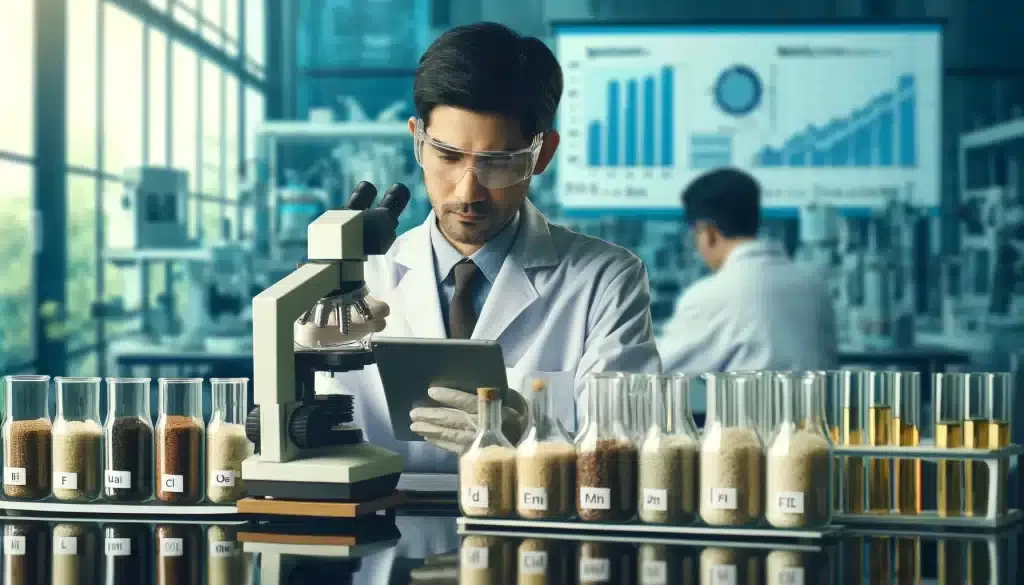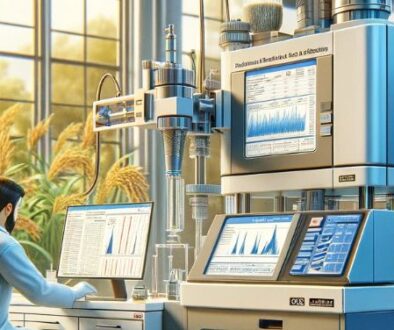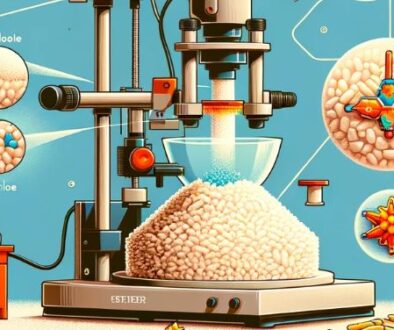Monitoring Of Heavy Metal Content In Rice Sold In Beijing And Dietary Risk Assessment
Comprehensive study on heavy metal content in Beijing rice, revealing safe levels but highlighting higher risks for children, urges enhanced safety measures.
The heavy metal content of commercially available rice was monitored to provide reference and data support for food safety risk assessment in Beijing. 537 commercially available rice samples were collected and analyzed for 9 heavy metals (Cd, Cr, Cu, Fe, Mn, Ni, Pb, Sr and Zn) content. The Nemerow comprehensive pollution index method was used to evaluate the heavy metal pollution level of commercially available rice, and the health risk assessment model was used to assess food safety. The results are as follows: The average values of rice Cd, Cr, Cu, Fe, Mn, Ni, Pb, Sr and Zn are 0.02, 0.02, 2.27, 2.63, 9.10, 0.15, 0.07, 0.17 and 14.27 mg/kg respectively. The degree of heavy metal contamination in rice is: Pb>Zn>Ni>Cu>Cd>Cr, and the risk level is: Cu>Zn>Cd>Pb>Cr>Ni. The results show that the Nemerow comprehensive pollution index of heavy metals in rice is low, indicating that the overall condition of rice currently sold in Beijing is good and at a safe level; the contribution rate of heavy metals in rice to THQ in children is higher than that in adults, and relevant departments should strengthen supervision and management of toxic heavy metals. Corresponding dietary guidance.
Methodology and Heavy Metal Findings
In a recent comprehensive study aimed at monitoring the heavy metal content within commercially available rice, a total of 537 rice samples were collected and analyzed to provide critical data and reference points for food safety risk assessment in Beijing. This initiative was particularly aimed at assessing the levels of nine heavy metals: Cadmium (Cd), Chromium (Cr), Copper (Cu), Iron (Fe), Manganese (Mn), Nickel (Ni), Lead (Pb), Strontium (Sr), and Zinc (Zn). Utilizing the Nemerow comprehensive pollution index method alongside a health risk assessment model, the study sought to offer a detailed evaluation of the heavy metal pollution levels in commercially available rice, thus contributing significantly to food safety measures.
Pollution Levels and Risk Assessment Results
The findings revealed average values of Cd, Cr, Cu, Fe, Mn, Ni, Pb, Sr, and Zn at 0.02, 0.02, 2.27, 2.63, 9.10, 0.15, 0.07, 0.17, and 14.27 mg/kg, respectively. An analysis of these results indicates a pollution sequence in the rice samples as follows: Pb > Zn > Ni > Cu > Cd > Cr, with the risk levels similarly arrayed as Cu > Zn > Cd > Pb > Cr > Ni. Notably, the Nemerow comprehensive pollution index pointed towards a low level of heavy metal contamination in the rice, suggesting that the overall condition of rice currently available in the market of Beijing is satisfactory and safe for consumption.
Demographic Differences in Health Risks
Moreover, the study highlighted a critical aspect of food safety concerning the demographic differential in health risks posed by these heavy metals. It was found that the contribution rate of heavy metals to the Total Hazard Quotient (THQ) in children was significantly higher than that in adults. This finding underscores the heightened vulnerability of children to heavy metal exposure through rice consumption, thereby signaling the need for enhanced supervisory and management efforts from relevant departments. Such efforts are essential to mitigate the potential health risks associated with toxic heavy metals, and to ensure the continued safety of rice consumption within the population.
Recommendations for Management and Dietary Guidance
Furthermore, the study advocates for the implementation of corresponding dietary guidelines tailored to address and minimize the risk posed by heavy metal contamination. This proactive approach is vital in safeguarding public health, particularly for more susceptible groups such as children. By reinforcing the importance of strict regulatory oversight and the dissemination of targeted dietary recommendations, the study contributes significantly to the ongoing efforts in food safety and public health protection.
Conclusion and Call to Action for Food Safety
In conclusion, this extensive analysis of heavy metal content in commercially available rice in Beijing offers invaluable insights into the current state of food safety within the region. The results not only affirm the overall safety of rice in the market but also highlight the critical need for continuous monitoring and management of heavy metal levels. Such endeavors are imperative in ensuring the health and well-being of the population, with a particular focus on the more vulnerable demographics. As we move forward, it is essential that these findings inform and guide the strategies of relevant authorities in their commitment to upholding food safety standards and protecting public health.
For futher details of this article and research, feel free to contact our team for assistance.
Original research was done by Wei Junxiao
About ETprotein:
ETprotein, a reputable plant protein vegan protein Chinese factory manufacturer and supplier, is renowned for producing, stocking, exporting, and delivering the highest quality organic bulk vegan protein and plant proteins. They include Organic rice protein, clear rice protein, pea protein, clear pea protein, oat protein, watermelon seed protein, pumpkin seed protein, sunflower seed protein, mung bean protein, peanut protein, various of plant peptides etc. Their offerings, characterized by a neutral taste, non-GMO, allergen-free attributes, cater to a diverse range of industries. They serve nutraceutical, pharmaceutical, cosmeceutical, veterinary, as well as food and beverage finished product distributors, traders, and manufacturers across Europe, USA, Canada, Australia, Thailand, Japan, Korea, Brazil, and Chile, among others.
ETprotein specialization includes exporting and delivering tailor-made protein powder and finished nutritional supplements. Their extensive product range covers sectors like Food and Beverage, Sports Nutrition, Weight Management, Dietary Supplements, Health and Wellness Products, and Infant Formula, ensuring comprehensive solutions to meet all your protein needs.
As a trusted company by leading global food and beverage brands and Fortune 500 companies, ETprotein reinforces China’s reputation in the global arena. For more information or to get a free sample of their protein products, please contact them and email sales(at)ETprotein.com today.












